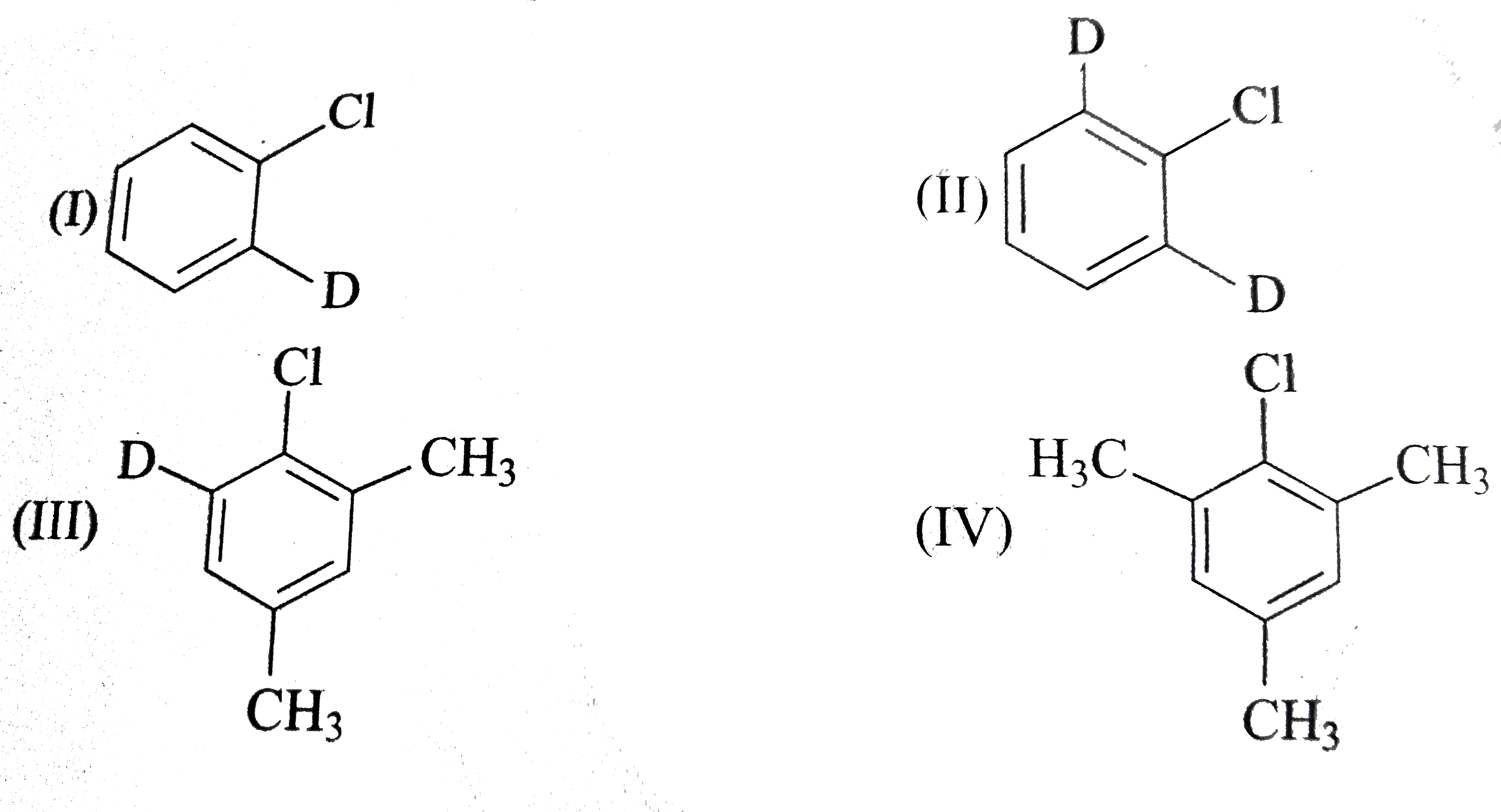Which of the following undergoes nucleophilic substitution exclusively by mechanism?
A
Benzyl chloride
B
Ethyl chloride
C
Chlorobenzene
D
Isopropyl chloride
Video Solution
Text Solution
The correct Answer is:A
Benzyl chloride forms resonance stabilised benzyl carbocation for reaction.
|
Updated on:21/07/2023
Topper's Solved these Questions
- BOOK - DINESH PUBLICATIONCHAPTER - ORGANIC COMPOUNDS WITH FUNCTIONAL GROUP CONTAINING HALOGENS EXERCISE - Selected Straight Objective Type MCQs78videos
ORGANIC COMPOUNDS WITH FUNCTIONAL GROUP CONTAINING HALOGENS
- BOOK - DINESH PUBLICATIONCHAPTER - ORGANIC COMPOUNDS WITH FUNCTIONAL GROUP CONTAINING HALOGENS EXERCISE - Linked Comprehension Type MCQs8videos
ORGANIC COMPOUNDS WITH FUNCTIONAL GROUP CONTAINING HALOGENS
- BOOK - DINESH PUBLICATIONCHAPTER - ORGANIC COMPOUNDS WITH FUNCTIONAL GROUP CONTAINING HALOGENS EXERCISE - UNIT TEST - 537videos
ORGANIC COMPOUNDS WITH FUNCTIONAL GROUP CONTAINING HALOGENS
- BOOK - DINESH PUBLICATIONCHAPTER - NO IDEAEXERCISE - Unit Test -1videos
NO IDEA
- BOOK - DINESH PUBLICATIONCHAPTER - POLYMERSEXERCISE - Matrix5videos
POLYMERS
Similar Questions
Knowledge Check
- Question 1 - Select One
Which of the following undergoes nucleophilic substitution exclusively SN1 mechanism?
ABenzyl chlorideBIsopropyl chlorideCChlorobenzeneDEthyl chloride - Question 2 - Select One
Which of the following undergoes nucleophilic substitution exclusively SN1 mechanism?
ABenzyl chlorideBEthyl chlorideCChlorobenzeneDIsopropyl chloride - Question 3 - Select One
Which of the following haloakane undergoes nucleophilic substitution reaction by SN2 mechanism only
ACH3BrBCH3CHBrCH3CC2H5CHBrCH3D(CH3)3CBr
Which of the following easily undergo nucleophilic substutition by SN1 mechanism in butanol
View SolutionWhich of the following easily undergo nucleophilic substutition by SN1 mechanism in butanol
View SolutionWhich of the following compounds undergoes
nucleophilic substitution most readly?View SolutionWhich of the following will not undergo nucleophilic aromatic substitution ?
 View Solution
View SolutionWhich the following compound undergoes nucleophilic substitution reaction most easily
View Solution

